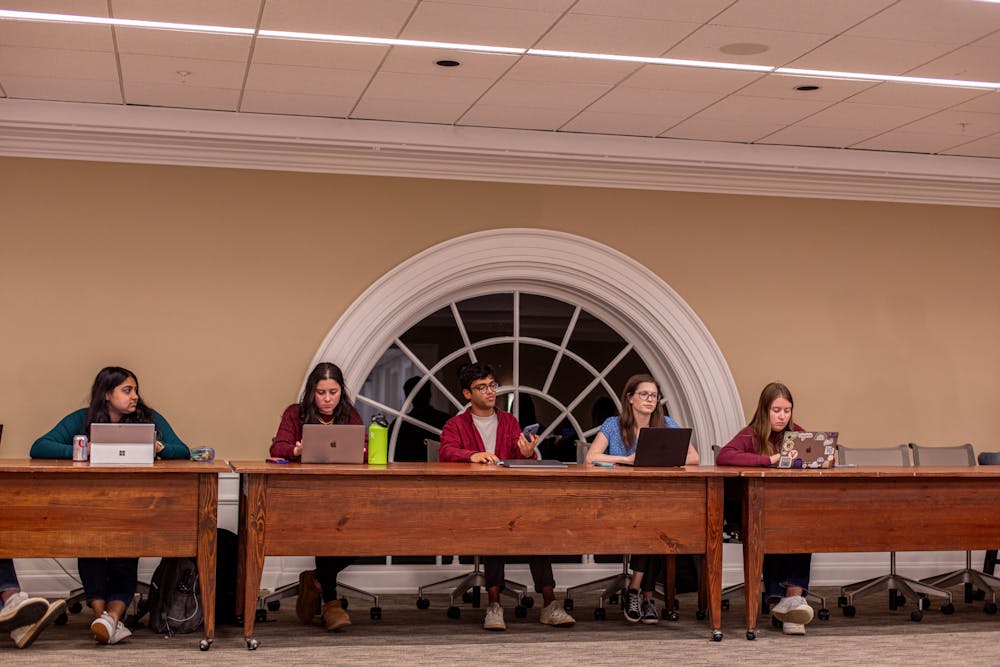The Honor Committee discussed areas for improvement in their formal bylaws, such as purpose and scope for the Panel for Sanction, and outlined finals period events for students at their meeting Sunday. The meeting had 10 out of 30 members present, meaning the Committee did not reach quorum and could not vote on any topic regarding the constitution or bylaws.
The Committee has been passing new bylaws to reflect the changes made by the monumental passage of the multi-sanction system last spring. According to Hamza Aziz, chair of the Committee and fourth-year College student, there is still work to be done on the bylaws.
“The first pass of bylaw amendments are just a first pass and there's going to be areas that we recognize that need improvement and need further looks,” Aziz said.
Over the past months, the Policies and Procedures Committee has identified multiple specific areas for improvement including the differentiation of the role of the report and the role of the Counsel for the Community in the Panel For Sanction, what kind of arguments should be presented to the Panel for Sanction, and hearing procedure efficiency.
The subcommittee has compiled a report on these areas that was released to the Committee on Monday. The Policies and Procedures Committee reviews Honor documents like the constitution and bylaws and recommends changes when necessary.
Second-year Engineering Rep. Alexander Church outlined a change being made in the report that would explicitly state the Panel of Sanction’s purpose, rather than give seemingly vague reasoning for sanctioning in the bylaws.
Current bylaws state the general purpose for the Panel for Sanction, but no details are given on the scope of the Panel. The Panel for Sanction consists of a panel of five randomly selected Committee members who decide what sanctions are reasonable for a guilty student.
“By clarifying the purpose, we can then look to some of our other areas of procedure to make sure that we're doing things in the best way possible,” Church said.
Due to the meeting not hitting quorum, the Committee was not able to vote directly on changes suggested in the P&P report. However, the Committee plans to vote on the topic at their next meeting.
Also during the meeting, the Committee discussed their plans for finals period initiatives. The Honor Committee does finals period events every year, hosting events to ensure students have resources during exam season and also expand Honor outreach to students.
This year, the Committee plans to set up well-being tables in major libraries on Grounds like the Music Library, Clark Library and Clemons Library. These tables will have resources for students like mindfulness cards that they can use to de-stress from studying.
Additionally, the Committee will offer free supplies to students like calculators — which need to be returned after the final — and blue books. The Committee also organized a Grit tab that students can use to get a free coffee or tea during finals.
The Committee also heard executive and representative reports. A Panel for Sanction convened on Tuesday and a guilty student was sanctioned.
The Committee adjourned their meeting early at 7:30 p.m.. The next Committee meeting will be held on Dec. 3 in the Trial Room of Newcomb Hall.







